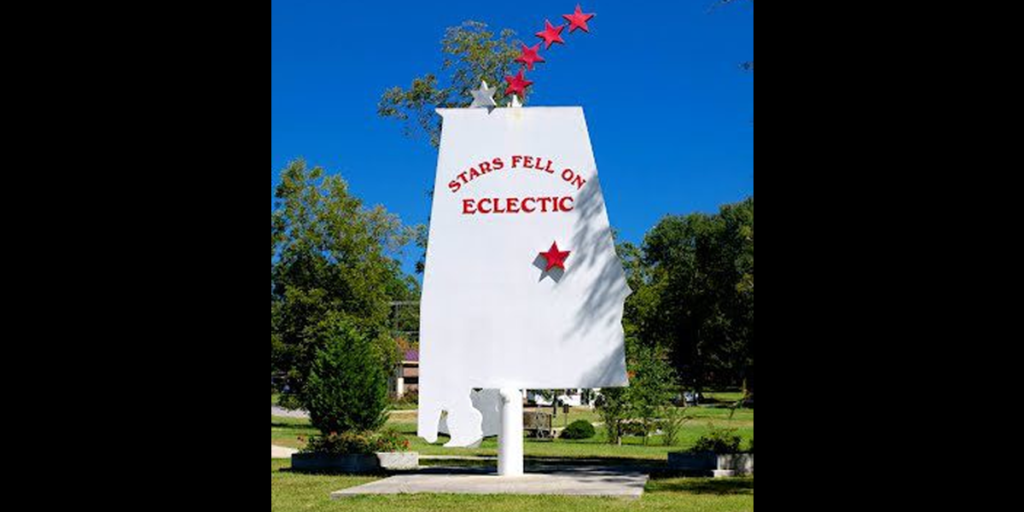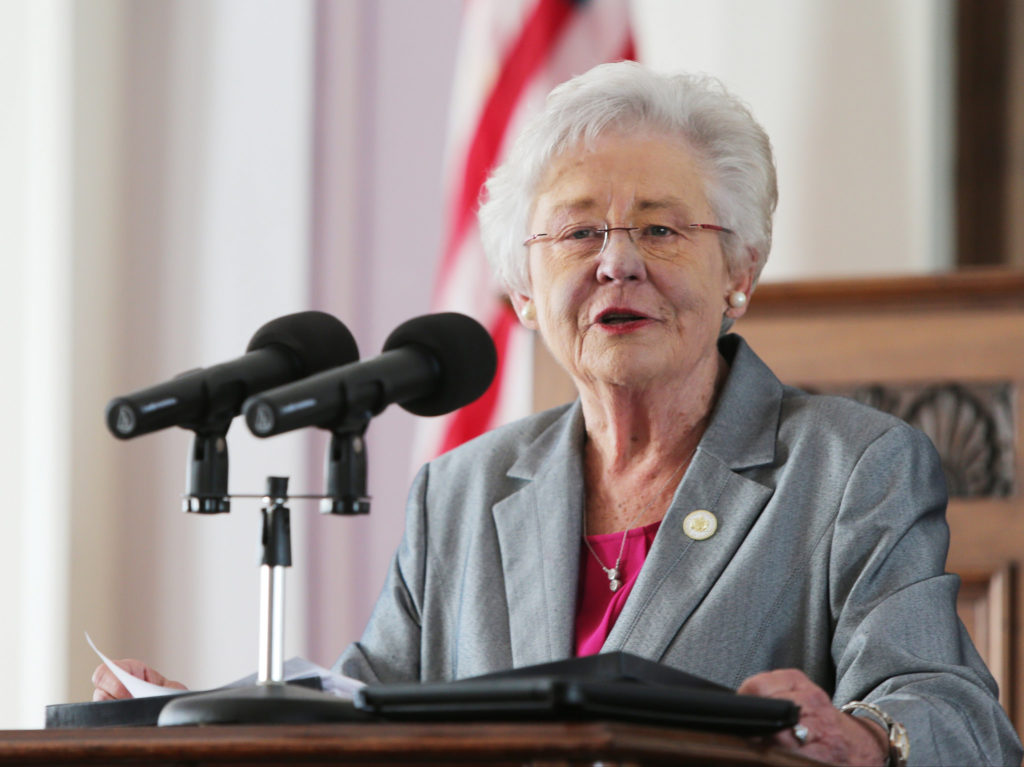Here’s what the state is selling in the Oct. 24 ADECA surplus property auction
Vehicles, computers, office furniture, TVs, refrigerators, metal detectors and even marine radar and sonar equipment are just a few of the more than 600 lots of items up for bid at the state surplus property auction. The Alabama Department of Economic and Community Affairs (ADECA) will host the surplus property auction Oct. 24 at its warehouse in Montgomery. The sale begins at 8 a.m. and continues until the last item is sold. In addition to property no longer needed by state and federal agencies, ADECA acquires items abandoned voluntarily at several airports in the Southeast. A photo ID and social security number or federal employee ID is needed to bid on items. Auction items can be inspected on-site from 8 a.m. to 4 p.m. Monday and Tuesday. ADECA conducts public auctions about three times a year, but surplus items are available at any time to municipal and county governments, state agencies and qualified nonprofit organizations. In addition to the surplus property program, ADECA administers an array of grant programs for law enforcement and traffic safety, economic development, energy conservation, water resource management and recreation development. The ADECA warehouse is located at at 4590 Mobile Highway. Click here for a full list of auction items.
Kay Ivey awards $1.89M to help victims of domestic violence, elder abuse

The Alabama Governor’s Office announced $1.89 million in grants funding to support organizations and programs that help victims of domestic violence and elder abuse throughout the state. Gov. Kay Ivey made the announcement on Friday. “No one should ever have to experience the horrors of domestic violence or elder abuse, but there is hope for those who unfortunately do become victims,” Ivey said. “The programs supported by these grants will help ensure that professional assistance is available and that justice is obtained for the survivors.” The grants breakdown $1.56 million grant: awarded to the Alabama Department of Human Resources to support their Adult Protective Services division that provides emergency in-home services and temporary placement option for victims of abuse, neglect or exploitation. Two grants, totaling $250,781: given to support the Alabama Coalition Against Domestic Violence as they serve their member programs and shelters throughout the state. The organization provides training, education and outreach on domestic violence issues, and their member shelters provide counseling, support groups and other vital services. $80,000 grant: allotted to help the Alabama Office of Prosecution Services to train law enforcement personnel, prosecutors, domestic violence shelter staff and other criminal justice agencies that investigate and prosecute abusers or assist victims of domestic violence. The Alabama Department of Economic and Community Affairs (ADECA) is administering the grants from multiple funding sources, including the U.S. Department of Justice, the state’s General Fund and the Domestic Violence Trust Fund, which was created through the state marriage license fee. Those funds are used to provide shelter for victims and to conduct educational and prevention programs. “Gov. Ivey understands the important roles these agencies play in helping domestic violence and elder abuse victims,” ADECA Director Kenneth Boswell said. “ADECA is pleased to join her in supporting these programs that provide important assistance to victims at a time they need it the most.”
Kay Ivey wants to see Alabamians become safer drivers

Gov. Kay Ivey wants to see Alabamians become safer drivers. That’s why she’s awarded a $2.8 million grant to the University of Alabama and Auburn University, who are putting their gridiron rivalries aside to team up to help Alabamians become safer drivers. The two universities, along with the Alabama Department of Public Health (ADPH), are gathering traffic safety data and converting it into messages to encourage Alabama drivers to use seat belts and child restraint seats, do not drink and drive or drive while distracted and obey traffic safety laws. “Regardless of your allegiance, when two of our larger universities work collaboratively to save lives and prevent injuries on our highways, our entire state wins,” Ivey said. “I am very grateful for the efforts of these universities along with the Department of Public Health to bring greater awareness to traffic safety. My administration remains committed to keeping drivers safe on our roadways, and I am proud to offer my support to this project.” The University of Alabama’s Center for Advanced Public Safety provides data to determine where crashes are occurring and the causes. The information, much of it collected by ADPH, also examines factors such as seat belt use, distracted driving and sobriety. Law enforcement agencies use that information to increase patrols and monitor traffic in high-crash zones. Auburn University’s Media Production Group produces outreach and awareness campaigns geared toward safe driving. Many of those promotions are tied to national highway safety campaigns like “Click it or Ticket” seatbelt enforcement or “Drive Sober or Get Pulled Over” impairment crackdown and are conducted around major holidays, like Labor Day, when more people are likely to be travelling. The Alabama Department of Economic and Community Affairs (ADECA) is administering the grants from funds made available to the state by the National Highway Traffic Safety Administration. “These efforts along with increased law enforcement presence send a clear signal that dangerous drivers are not tolerated on Alabama’s roads,” ADECA Director Kenneth Boswell. “ADECA is pleased to join Gov. Ivey in supporting the efforts of these institutions to increase highway safety.” Gov. Ivey notified Cynthia Hope, UA director of sponsored programs, John M. Mason, AU vice president for Research and Economic Development and Dr. Scott Harris, state Health Officer, that the grants had been approved.
Eclectic receives $200,000 grant to expand production facility, creating 20 new jobs

The small town of Eclectic, Ala., located in Elmore County, is the recipient of a $200,000 Community Development Block Grant (CBDG) to assist in expansion of a production facility, creating 20 new jobs. Eclectic will use grant funds to improve the existing roads leading in and out of the industrial park where Madix Inc. is located. Madix, which designs and manufactures displays, panels and platforms for retail stores, intends to expand its facility and create 20 new jobs. The expansion will increase the amount of truck traffic on Middle Road and Madix Drive which have already deteriorated due to heavy use from trucks traveling to and from the facility. Gov. Kay Ivey announced the grant on Tuesday. “Assisting with job creation is a top priority for my administration,” Ivey said. “This grant will enable Eclectic to improve important roads and aid Madix in expanding its production and shipping ability, which will create new jobs.” The project will include an update to 835 feet of Middle Road as well as improvements over the culvert on Madix Drive. The town is contributing $75,256 in matching funds to complete the project. The Alabama Department of Economic and Community Affairs (ADECA) is administering the CBDG from funds made available to the state by the U.S. Department of Housing and Urban Development. “Bringing more jobs to rural Alabama is important to both Gov. Ivey and me,” ADECA Director Kenneth Boswell said. “With the governor’s leadership, ADECA is pleased to partner with Eclectic to improve these roads and increase the number of job opportunities for residents.”
Kay Ivey awards grant to assist sexual assault victims statewide

The Ivey administration on Thursday announced a nearly $400 thousand grant to an Alabama-based sexual assault victim support group. The $390,972 grant was awarded to the Alabama Coalition Against Rape, a statewide nonprofit organization that assists victims of sexual violence and works to prevent others from being victimized. “It is very unfortunate that this crime exists, but we must face the reality that it does and that victims need access to professional aid,” Ivey said. “The Alabama Coalition Against Rape and its associate organizations have steadfastly been there to support victims and offer them the services they need to overcome their ordeals.” The Alabama Coalition Against Rape has been helping provide legal, medical and counseling services to victims throughout the state since 1995 and has been an advocate for laws and public policy regarding sexual abuse and rape. The coalition, made up of more than a dozen agencies that provide regional services for victims, also has sought to bring awareness of the crime through its educational programs. In addition, the coalition provides training for allied professionals and networks and maintains connections with other private and public agencies to address sexual violence issues. The Alabama Department of Economic and Community Affairs (ADECA) is administering the grant from funds made available by the U.S. Justice Department. “ADECA joins Gov. Ivey in supporting this program and ensuring victims are given appropriate resources to get their lives back in order,” ADECA Director Kenneth Boswell said. “The support provided through the coalition’s member agencies are vital to achieving that goal.” Ivey notified Chandra Brown, coalition president, that funds had been approved.
Kay Ivey awards grant to help bring jobs to town of Steele

Gov. Kay Ivey on Thursday awarded a $118,000 grant to the town of Steele for infrastructure upgrades that will help bring new jobs to the area. The Community Development Block Grant (CBDG) will be used to restore a water tower used by Unipres Alabama Inc., a global supplier of steel automotive parts. The company is expanding, constructing a 150,000-square-foot building to accommodate a new assembly line which is expected to create 50 jobs. “My administration is very focused on economic opportunities for Alabamians, so job growth and company expansions like the Unipres Alabama plant in Steele are great news for our state,” Ivey said. “I am pleased to support Steele in preparing the way for this expansion and the new job opportunities it will provide.” The company is investing in a new heat stamping process that requires water for cooling the steel used in automotive bodies. The water tank’s interior and exterior will be restored, alleviating any corrosion or deterioration that might otherwise lead to water leaks or particles getting into the cooling process. The Alabama Department of Economic and Community Affairs (ADECA) is administering the grant from funds made available by the U.S. Department of Housing and Urban Development. “Gov. Ivey has consistently shown her support for economic growth and a desire to bring even more jobs to Alabama,” ADECA Director Kenneth Boswell said. “ADECA is pleased to play a role in this project which will bring benefits to Steele and the surrounding area.” The Steele Water Board is providing $35,000 to supplement the award.
Kay Ivey announces grant to fund Alabama Drug Task Force

Governor Kay Ivey announced $64,054 in grants on Tuesday to fund additional support for The Alabama Drug Task Force. The task force, which began operations in October of 2017, lead by the Alabama Law Enforcement Agency, was established by Ivey to provide a concerted legal effort to reduce the impact of drugs and to dismantle drug organizations in the state. “My administration is committed to supporting the strong efforts of ALEA and law enforcement agencies across the state to take drugs off the streets and put offenders in jail,” Ivey said. “I commend these brave officers, who are united behind a single cause, for their dedication to make Alabama a better and safer place to live.” The total task force is comprised of more than 90 officers from over 40 agencies forming seven regional multi-jurisdictional offices. This grant boost will provide funding for a variety of purposes, including equipment and overtime pay. The funds were made available by the U.S. Justice Department, and will be administered by the Alabama Department of Economic and Community Affairs (ADECA). Within the first six months of operation, the task force made 146 arrests involving 312 drug cases, seized an assortment of illegal and prescription drugs and confiscated 145 firearms, according to ALEA. “The Alabama Drug Task Force is working tirelessly to improve the safety of communities across our state,” added Kenneth Boswell, ADECA Director. “ADECA is pleased to join Governor Ivey in supporting the efforts and operations of this task force.”
Incentives bill to encourage rural broadband expansion becomes state law

In Alabama, there are more than 842,000 people without access to a wired connection capable of 25mbps download speeds. Over 1 million people in Alabama have access to only one wired provider and another 276,000 people in Alabama don’t have any wired internet providers available where they live. A new law hopes to change all of that by incentivizing the expasion of broadband across rural Alabama. On Wednesday, Gov. Kay Ivey signed SB149, the Alabama Broadband Accessibility Act, which authorizing the creation of a broadband accessibility grant program to be administered by the Alabama Department of Economic and Community Affairs (ADECA). The bill, sponsored by Guntersville-Republican State Sen. Clay Scofield and Geneva-Republican State Representative Donnie Chesteen, also creates the Alabama Broadband Accessibility Fund. “The internet is vital to economic development, health, education, and to be honest, all areas of our modern life. This common sense legislation will help us attract new broadband to areas that need it most, especially in rural Alabama,” said Ivey. “I congratulate Senator Scofield and Representative Chesteen for a job well done in seeing this bill through the legislature. It is just another step forward as we improve access to high-speed internet sooner rather than later.” It’s safe to say — the third time is a charm. The 2018 session was the third time Scofield introduced the bill this quadrennium. “As a senator and a resident of a rural part of Alabama, I understand the need for broadband expansion across our state. With this expansion we can see more growth in our economy, our residents can find better health care and there will be more opportunity for our students to learn,” emphasized Scofield. “I appreciate Governor Ivey for fully supporting our efforts to improve life in rural Alabama.” “I was proud to carry this important legislation in the House of Representatives,” added Chesteen. “As a representative of the citizens of rural Alabama, I see first-hand how a lack of internet connectivity limits the growth of communities. It is important that we get this new program up and going so that our rural communities will be able to take part in the economic growth that our larger areas are seeing,” Through this legislation Alabama encourages accelerated private investment in broadband infrastructure by telecommunications companies, cable companies and electric cooperatives in rural areas. Grants awarded by ADECA under this act may only be awarded for projects in unserved areas. “The Alabama Broadband Accessibility Act gives the state a valuable new tool. With Governor Ivey’s support, ADECA will work under this new grant framework to facilitate the expansion of broadband in rural areas of Alabama that currently lack high-speed internet,” added ADECA Director Kenneth Boswell. Alabama will further be helped by a pilot program, grants and loans from the federal government. Last week, Congress, through an effort led by Alabama Congressman Robert Aderholt, included in the $1.3 trillion omnibus spending bill a $600 million Broadband Pilot Program, created by the Secretary of Agriculture, which will enable applicants to finance a project by combining loans and grants to provide broadband to eligible rural and tribal areas. “This new federal pilot program will help boost broadband expansion in Alabama and around the country. It is a testament to the Trump Administration’s commitment to improving the lives of rural America,” Ivey explained. “I thank Congressman Aderholt for leading the charge on this effort. In Alabama, we plan to take advantage of every opportunity that is provided us, in order to ensure every Alabama citizen has proper access to this vital aspect of our modern-day infrastructure.” The newly created federal investment will leverage nearly $1 billion in total new rural broadband projects across the country.
Alabama Senate approves General Fund budget, prison funding boost

The Alabama Senate on Tuesday passed a $2 billion FY19 General Fund budget. Senators voted 26 to 2 for the budget that appropriates funds for functions of government, debt service, and capital outlay for fiscal year ending September 30, 2019. Answering Gov. Kay Ivey‘s January request, the budget allocates a $3.2 million increase to the Alabama Law Enforcement Agency (ALEA) to fund a new class of 30 state troopers. It also provides an $8 million increase for the Department of Mental Health, as well a a $4.7 million increase for the Alabama Department of Economic and Community Affairs (ADECA). “This budget protects the taxpayers of Alabama, while ensuring that the core functions of state government are adequately funded,” said Montrose-Republican and the bill’s sponsor, State Senator Trip Pittman, Chairman of the Senate Finance and Taxation Budget Committee. “We have prioritized targeted increases for state troopers, prisons, and the Department of Public Health, and level-funded nearly every other state department and agency.” The spending plan also sends an additional $51 million to the Alabama Department of Corrections (ADOC). The allocation of funds follow U.S. District Judge Myron Thompson ruling last year to a federal lawsuit, which declared Alabama’s prison system has failed to provide mental health care to the state’s prison population and is in violation of the Eighth Amendment’s prohibition on cruel and unusual punishment. “Given the severity and urgency of the need for mental-health care explained in this opinion, the proposed relief must be both immediate and long term,”U.S. District Judge Myron Thompson wrote in his 302-page decision. Anniston-Republican and Senate Pro Tem Del Marsh said it’s a good budget that lives within Alabama’s fiscal means without raising taxes. “This is a good general fund budget, we were able to fully fund state agencies, hire new state troopers, provide much needed money to address mental health in our prisons, and pay back debt to the Alabama Trust Fund,” said Marsh. “Although the past few budgets have been lean, through conservative fiscal practices and living within our means we have been able to come out of those years and pass a robust budget without having ever raised new taxes on hard working Alabamians.” The bill now moves to the state House of Representatives for consideration.
Public transportation bill moves through state legislature

Alabama is one of only five states with no state funding for public transportation. A bipartisan pair of state legislators is hoping to soon change that. Birmingham-Democrat state Sen. Rodger Smitherman and Vestavia-Republican state Rep. Jack Williams have each sponsored legislation, SB85 and HB10 accordingly, that would create the Alabama Public Transportation Trust Fund to fund activities that increase public transportation options across the state. According to the proposed legislation, the fund would be maintained and administered by the Alabama Department of Economic and Community Affairs (ADECA). ADECA would make its decisions based off of recommendations made by a 13-member advisory committee. Alabama Arise — a statewide nonprofit, nonpartisan coalition of congregations, organizations and individuals promoting public policies to improve the lives of low-income Alabamians — is one of the voices who has come out support of the legislation. The organization held a press conference at the State House on Tuesday, as part of their 2018 Legislative Day, advocating on the legislation’s behalf. “Alabama Arise has been working on this since the 1990s, when people were transitioning from welfare to work. That transportation aspect has been the hardest part,” said Kimble Forester, executive director of Alabama Arise. “This is one area where we have gone backwards. Public transportation is in the future.” The trust fund would be supported by state funds and would also allow the state to apply for federal public transportation grants. “The state loses out on millions of dollars of transportation dollars every day. We are supporting legislation this year by Senator Rodger Smitherman and Rep. Jack Williams,” added Alice Paris, chair of Alabama Arise’s legislative committee. The Senate voted 26-0 for Smitherman’s bill in late January. Meanwhile, Williams’ bill won overwhelming House committee approval earlier in the month and is now awaiting a full House vote.
Incentives bill to encourage rural broadband expansion passes Alabama Senate

Clearly the third time’s a charm when it comes to passing a bill that incentivizes the expansion of rural broadband. Guntersville-Republican State Sen. Clay Scofield re-introduced SB149 — a bill that incentivizes private projects and increases opportunity for rural broadband expansion — for the third time this quadrennium and it finally passed the Senate on Thursday. “In the 1930s the infrastructure challenge was electricity, and in the 60s and 70s it was ensuring rural areas had clean drinking water. Expanding access to broadband internet is the infrastructure challenge of our day. We must ensure that all Alabamians have an opportunity to succeed in the digital economy,” Scofield said. “Currently, thousands of families and businesses in rural Alabama are without access to fast broadband. That’s unconscionable.” The Alabama Rural Broadband Act is a free-market approach to increasing private investment to expand high-speed internet access across the state. The legislation would exempt companies that build qualified broadband telecommunications network facilities in rural areas from sales tax for 10 years. It would also provide a 10 percent investment tax credit, capped at $20 million per company annually. The Alabama Department of Economic and Community Affairs (ADECA) and a legislative oversight committee are tasked with overseeing implementation of the legislation. All of the incentives will expire in five years, unless renewed by the state legislature. “Students, families, and business owners in rural Alabama desperately need fast broadband internet,” said Jasper-Republican Senate Majority Leader Greg Reed. “Senate Republicans are committed to making sure that all of Alabama thrives as our state economy continues to grow. I commend Sen. Scofield for his able leadership in moving this legislation forward.” The World Bank commissioned a study in 2015 that showed a 10 percent increase in broadband penetration could increase economic growth by 1.2 percent. It also stated that doubling broadband speeds can add 0.3 percent to GDP growth. “Seventy years ago, co-ops and private companies invested in bringing electricity to the country, improving life and creating jobs for millions. It’s my hope that this legislation will spur the same expansion with the internet to all those same households and businesses,” Scofield remarked. SB149 now moves to the Alabama House of Representatives for consideration.
Kay Ivey awards over $400,000 to law enforcement agencies across state

Gov. Kay Ivey has granted over $400,000 to fifteen different law enforcement agencies across the state. The funds will be used to purchase new gear and increase safety in their individual districts. “The brave men and women of our law enforcement agencies put their lives on the line each and every day to serve and protect their communities,” Ivey said. “I am pleased to help them obtain the needed equipment to enable them to do their jobs effectively and safely.” The funds are available through the U.S. Department of Justice, and will be administered by the Alabama Department of Economic and Community Affairs (ADECA), which administers an array of programs supporting law enforcement and traffic safety, economic development, energy conservation, water resource management and recreation development. The individual counties and districts and how they will use the grants are as follows: West Alabama: Hale, Sumter and Marengo counties will use grants to obtain new patrol vehicles Greene County Sheriff’s Department will invest in radios, bullet-proof vests and related equipment Eutaw Police Department will purchase vehicle radar systems and a live-scan fingerprint system The Demopolis Police Department aims to use funds for a new generator, assorted office equipment, electronic stun devices East Alabama: Valley plans to use funds to purchase laptop computers Lanett will use grant to acquire laptop computers, body cameras and electric stun guns Alexander City will purchase a utility task vehicle and traffic equipment Dadeville will invest in an off-road vehicle and body cameras Sylacauga plans on purchasing 30 stun guns and accessories for their police department Northeast Alabama: Cherokee County Commission will purchase a new vehicle for the Sheriff’s Office Jackson County Commission for the Sheriff’s Office will purchase tasers, body cameras, and a server to store video data The city of Arab will invest in a video system that includes in-car and body cameras for the police department The city of Guntersville will purchase 80 firearms for the police department The city of Scottsboro plans to purchase four new in-car computers for their police department Pell City will invest in a new case management system which will enable their officers to track crime reporting and to share evidence and intelligence with other law enforcement agencies Irondale plans to buy a body camera system for their officers.


